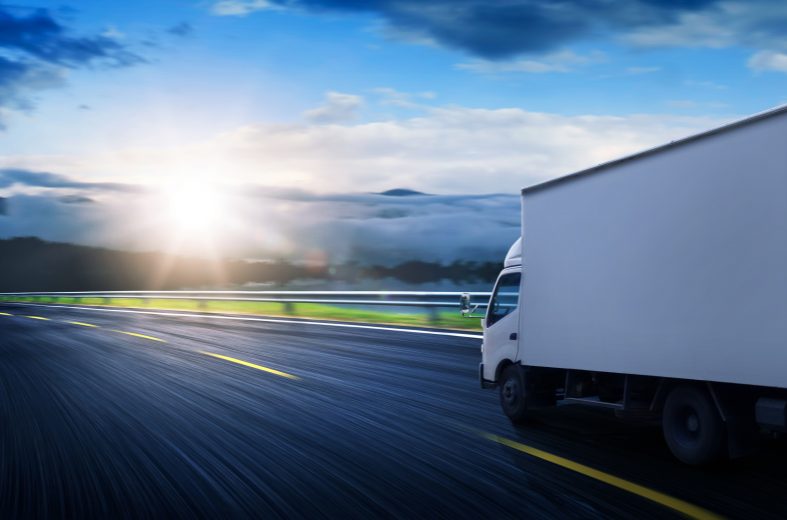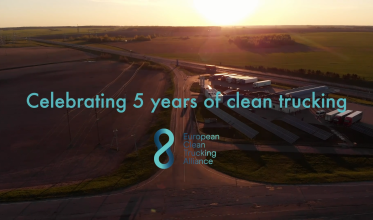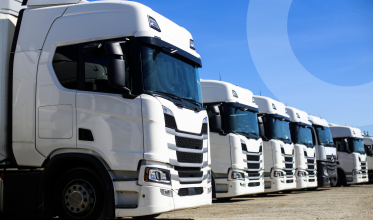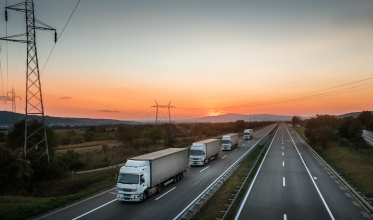The European Clean Trucking Alliance, a coalition of European key players in road freight urges the EU to accelerate the transition to clean trucks by scaling up the availability of infrastructure and strengthening the CO2 emission standards to enable emission-free road transport.
The European Clean Trucking Alliance (ECTA), a unique coalition calling for the decarbonisation of road freight in the EU urges the European Commission to grab the opportunity of the upcoming proposals under the ‘Fit-for-55 Package’ and come up with an ambitious policy framework to make zero emission freight a reality.
The landscape of road transport decarbonisation is changing: truck makers are coming out with pledges and sales targets and many transport actors such as members of the Alliance are ramping up their efforts to green their fleets. Zero emission trucks and vans are arriving on the market but the infrastructure to operate these vehicles is largely missing. As this is creating a bottleneck that hampers the transition to a greener freight mobility, the deployment of adequate and reliable charging infrastructure should start now.
The Alliance position paper comes ahead of the Fit for 55 Package which will shape several decisive regulations for the future of road transport: the expected review of Europe’s Alternative Fuels Infrastructure Directive (AFID), the TEN-T and TEN-E regulations, the Energy Taxation Directive and CO2 emission performance standards for light commercial vehicles.
Ramping up the infrastructure
There are approximately 40 million vehicles delivering across Europe2, with trucks carrying more than three quarters of all freight transported across the continent. The upcoming revision of the TEN-T Regulation should be the opportunity to identify road freight urban nodes as hotspots of freight activity in Europe.
“The availability of infrastructure for zero-emission trucks and vans is one of the biggest challenges to decarbonising our fleets – only ambitious regulations with AFID and policy support can turn this into the greatest opportunity of the decade” said Kristin Kahl, the Alliance’s spokesperson.
To ensure seamless cross-border operations and regional delivery operations, the Alliance calls on the Commission to establish binding targets in the AFID legislation for infrastructure in all EU member states. A minimum of 2 public charging stations per freight urban node by 2025 – to be increased to a minimum of 10 charging stations by 2030 – are needed to make the transition to zero-emission trucks a reality in every member state.
The TEN-T core network corridors should become zero-emission freight corridors, with sufficient charging and green hydrogen refuelling infrastructure deployed at the latest by 2027 and completed by 2030 to enable zero-emission long haul trips.
“Developing a network of safe and secure truck parking areas goes hand in hand with the reinforcement of the electricity grid to provide high power to the charging infrastructure as well as green hydrogen refuelling infrastructure” added Kristin Kahl, the Alliance’s spokesperson.
Ensuring the required supply of zero emission vans
In Europe, transport is the biggest source of emissions at around 28% and is the sector with the highest emissions increase since 1990. Despite this alarming situation, the current CO2 emission performance standards for vans are not driving the market towards zero-emission: only 1.4% of new vans registered in the EU in 2019 was electric and according to preliminary data only 2% in 2020[1] .
To stay on course for zero emissions by 2050, the upcoming CO2 performance standards revision is the opportunity to strengthen the standards in order to boost supply of zero-emission vehicles. The Alliance recommends having at least 50% of new vans sold in 2030 zero-emission and by 2035 all new vans sold to be zero-emission.
This is a golden opportunity to make almost CO2-free city logistics in major urban centres by 2030, with a proper policy framework to ensure a steady and increasing supply of zero-emission vans with sufficient infrastructure.
[1] 2020 van registration data from Dataforce, analysis by Transport & Environment (February 2021)
Notes
1 2020 van registration data from Dataforce, analysis by Transport & Environment (February 2021)
Press contact
Claire Meyer, Strategic Communications Manager Transport, European Climate Foundation, claire.meyer@europeanclimate.org, +32471093468
More About the European Clean Trucking Alliance
ECTA brings together a broad and diverse range of European players in the road transport of goods such as leading businesses, organisations and civil society associations (see Annex below) that share a strong commitment to accelerate the EU’s transition to zero-emissions trucks.
ECTA business members include major hauliers, logistics and consumer goods companies in Europe and beyond. Altogether, the ECTA business members employ more than 2.3 million people globally and have over EUR 400 billion yearly revenue. This latter figure is comparable to the GDP of Austria[1]. The organisations that have joined ECTA are some of the civil society organisations and associations with the strongest network of members and experience in transport and mobility at the European level.
The latest members to join ECTA are Codognotto, DSLV and FERCAM Logistics&Transport.
For more information, please visit the ECTA website: www.clean-trucking.eu
[1] Nominal GDP in 2020, Eurostat





